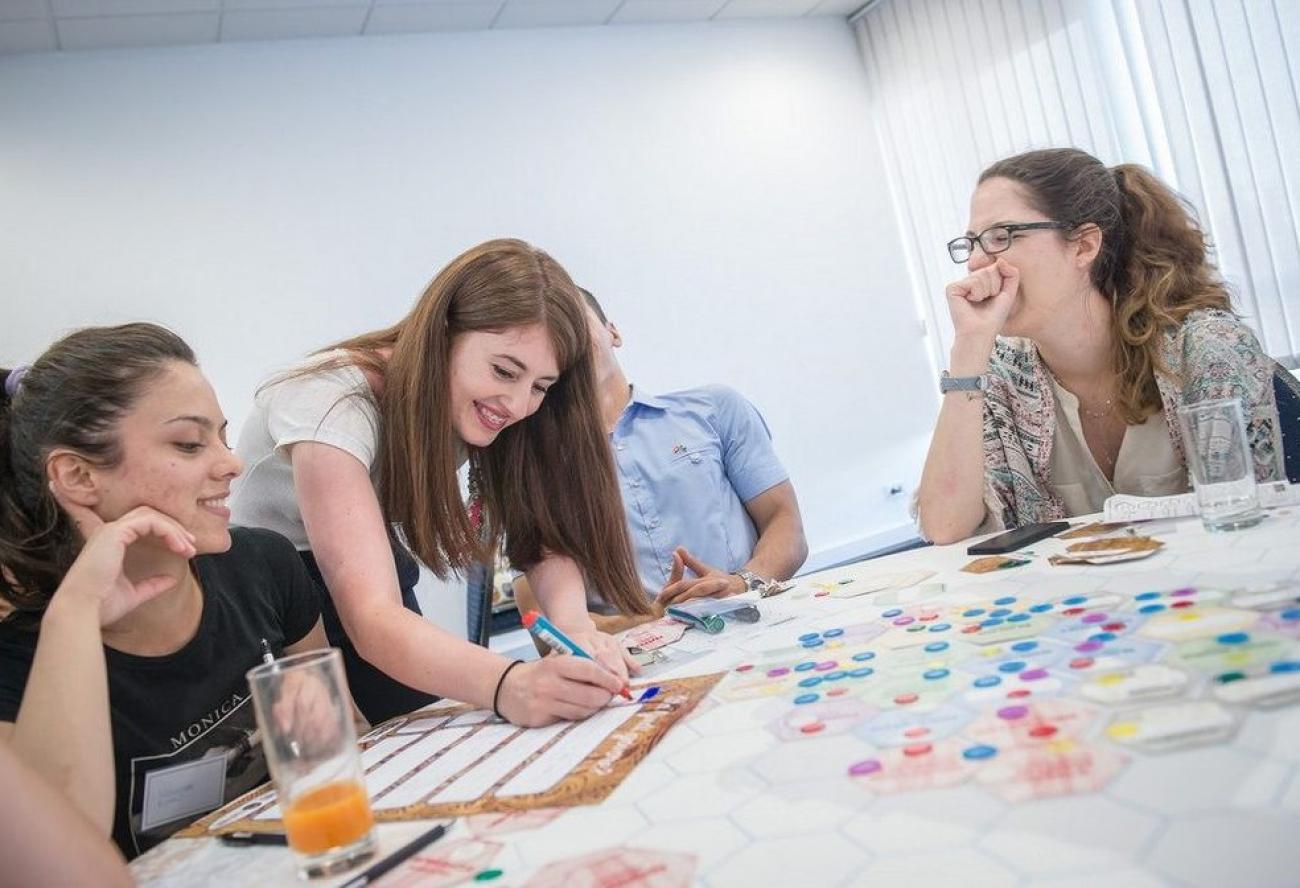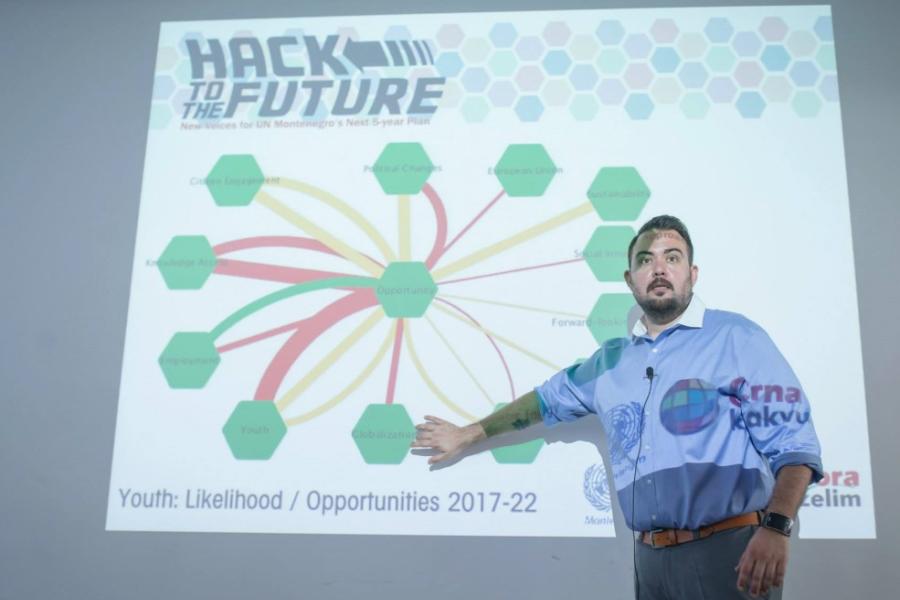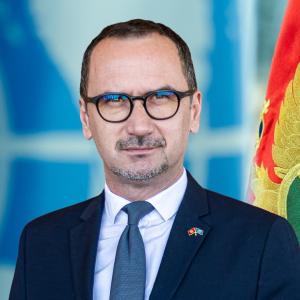Foresight: Spotting the future in Montenegro

Foresight is a widely used tool for planning, strategy, and policy development and it was used in Montenegro for the first time.
What kind of future will we live in? What will Montenegro look like in 2030? These questions are very hard to answer, for sure, as the future is getting more and more uncertain. But that’s not the reason to sit and wait for the future to happen.
The UN Team in Montenegro decided to try to take a glimpse into the future so it could better design its strategic five-year plan. In order to align its future priorities with the upcoming uncertainties, the UN Montenegro introduced a Foresight approach – an innovative way of thinking about what’s on the horizon. It’s basically a strategic planning process which provides an opportunity to use citizen feedback for programming purposes.
Foresight is a widely used tool for planning, strategy, and policy development and it was used in Montenegro for the first time. The futurist John Sweeney from the Center for Postnormal Policy and Future Studies in US helped UN team to use this innovative concept aimed at carving out the new long-term vision of cooperation in addressing key human rights and development challenges.
“Foresight is something that people practice every day, when you brush your teeth to prevent gingivitis, to prevent the bad message from the dentist. That's foresight. Foresight is thinking about the future and how we use it. The work we do with communities, organizations, governments, agencies like the UN, to help them to challenge their assumptions about the future,”
John Sweeney, Futurist from the Center for Postnormal Policy and Future Studies

The new voices of Montenegro
The Foresight approach is essentially engaging the new voices of Montenegro in critically thinking about the future of the country. Therefore, to make the process as forward looking as possible, this innovative method involved various groups of people of Montenegro, because, as Sweeney says, Montenegro's future is full of promise but it needs to be shaped by the people of Montenegro.
"The UN is applying this innovating concept as a way to bring stakeholders together, to get people to have a new way of dialogue, so they could feel their voice can contribute to a conversation."
In order to include peoples’ perspectives on its new five-year strategic plan, the UN team in Montenegro organised several foresight workshops with different groups of citizens including young people as well as experts and competent individuals from various fields such as academia, NGOs, employment associations, human rights groups, students’ associations and businesses.
"What looked so innovative and interesting to me is the fact that everything is conceived as a game full of associations. A game that really enables every participant to be involved, in a very creative and open way, in something called, I wouldn’t say prediction, but rather imagination,” said Dubravka Drakić, actress and professor at the Faculty of Drama.
Aleksandar Janičić, businessman from Nikšić, points out that special value of the Foresight approach is that it “allows, without too much fatigue and sketchy forms we are all used to, to get essential information related to the future development of Montenegro.
"Very interesting and definitely innovative way to discuss things that concern our future in a kind of space that is not limited,” said student Balša Lubarda, while his peer Bojana Tomović highlighted that the concept is specifically useful for helping young people unlock their visions of different futures.
Innovative concept of exploring preferred and likely futures of Montenegro and its possible human rights and development directions was also organised with representatives of the Government of Montenegro.
"The foresight approach is innovative in terms of writing strategies, especially for us, civil servants, who deal with the trategic documents on a daily basis. This is something that we can apply in practice, in the future"
Marija Mijušković, Ministry of Sustainable Development and Tourism
Dragana Šćepanović from the Ministry of Foreign Affairs and European Integrations believes that the joint use of Foresight by the Government and the UN is particularly valuable. "If we plan some joint activities and priorities together we will implement them faster," she says.
What’s the secret?
While many planning, strategy, and policy development processes use data, models, and consultations, foresight widens the scope of analysis by using the future to look for blind spots, emerging issues, critical uncertainties, and uncommon opportunities.
Functioning as a serious game, the enhanced survey tool uses basic gaming mechanics to facilitate a dialogue amongst participants. Following a simple pattern involving the placement of cards and tokens for weighting, the tool generated a significant amount of insights on the challenges, opportunities, actors, actions, and values that will impact Montenegro in the years to come.
This is anything but a game. It’s pretty serious stuff. Foresight helps in creating “quite meaningful future mosaics.
Mladen Grgić, expert on Chinese foreign policy
Future is an open space!
Within the Foresight exercise called “Hack the Future", the workshops focused on Montenegro’s “Likely” future by 2021 but also on a “Preferred” future by 2030. Focusing on prioritization, foresight quite literally lays everything out on the table. It’s not just about generating new solutions, but also developing better ways of thinking about the problems.
"We want people to feel like that the future can be an open space," says John Sweeny, adding that Foresight fits so well with Montenegro, considering the changes that happened in the country in last 30, 40 years. The tool simply collapses the boundaries between the possible and what seems impossible at the moment, so the participants were eager to share insights and perspectives on the critical aspects of Montenegro's future.
"With all my heart I want Montenegro to be a real ecological state in the future,” said Dubravka Drakić from the Faculty of Drama, while Aleksandar Janičić sees Montenegro in 2030 as a country of renewable energy sources and clean energy and a country of civic activism, different forms of association, and civil society organizations."
If scenarios of the future are decided by those at the top – policymakers, technocrats, development practitioners, than inevitably development policies will be built to reflect only those futures.
So the UN's foresight approach generated some interesting data so it can enable greater debate, and greater resolution on the people's perceptions of futures.
Written by


















